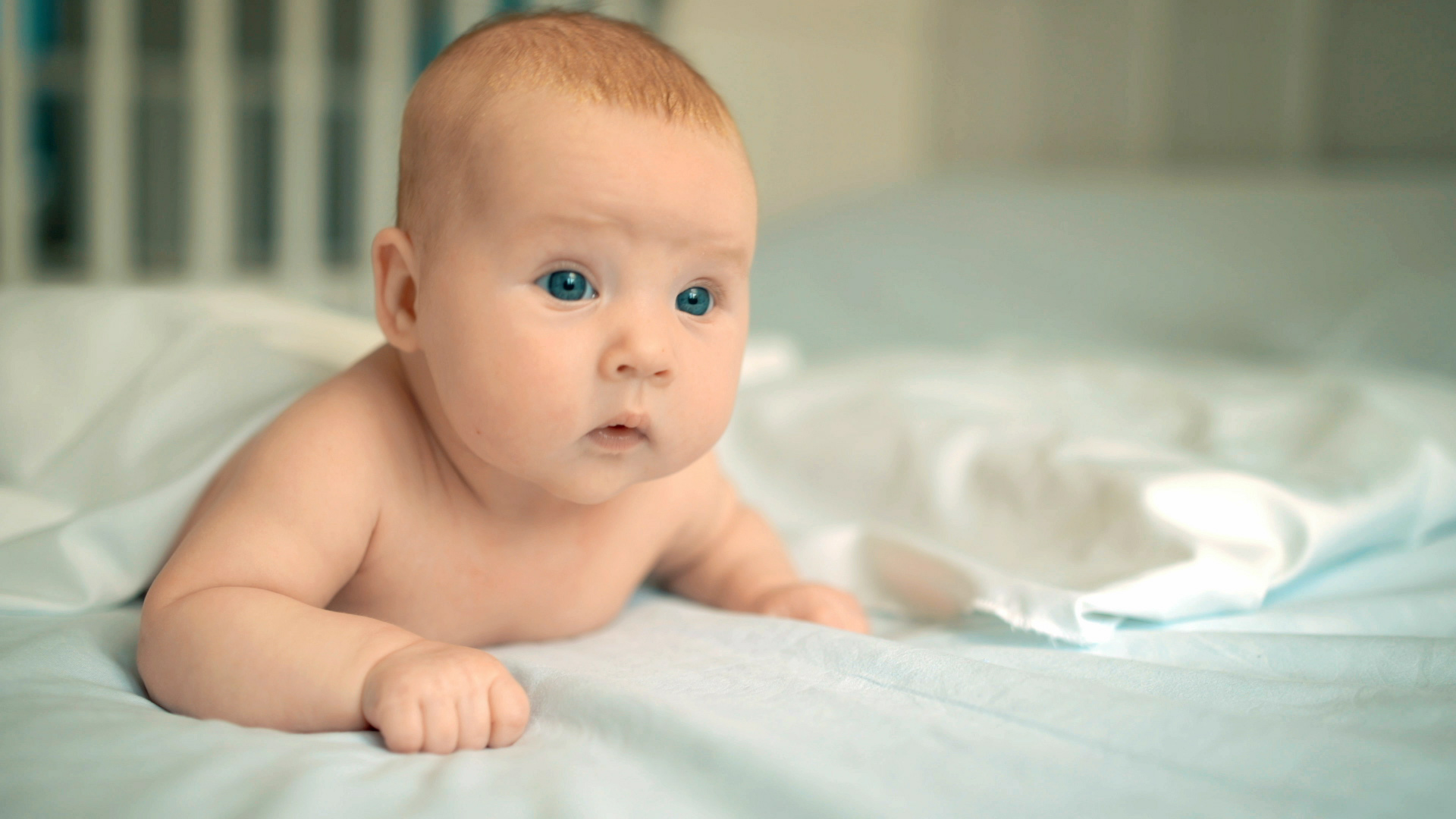
Parents of newborns may be concerned that their L.O. will be affected by cradle cap, a common skin condition also referred to as seborrheic dermatitis, which thought to affect 10 percent of infants up to the ages of 1 month, and 70 percent by 3 months of age. (By the time infants are 1-2 years old, only 7 percent are affected.)
But it can be difficult to prevent cradle cap, as pediatricians aren't quite sure of the cause, notes Clare Bush, MD, a pediatrician at ColumbiaDoctors and Assistant Professor of Pediatrics at Columbia University Medical Center. "One thought is that it is due to oil production accentuated by the hormones a baby encounters during the prenatal period," Dr. Bush says. "No matter the cause, cradle cap is cosmetic and is not harmful to babies."
That said, if you do find yourself dealing with a bout of the condition, there are ways you can tackle it head-on.
Rub in some oil. Right before putting Baby into his bath, rub some coconut oil, baby oil or olive oil onto the scaly patches his head and the surrounding areas.
"Gently massage the oil into the area that has the flakey, scaly skin of cradle cap," says Dr. Bush.
Just be sure not to use too much oil, or it will be difficult to get out. Allow the oil to sit for a few minutes to give it time to loosen the dry patches of skin.
Brush it away. While she's in the bath, wet your baby's hair with warm water; then use a soft brush or a dry washcloth to rub the area and get rid of the scales.
Shampoo and rinse. Use a gentle, hypoallergenic shampoo to rinse away the oil from Baby's head. Allow the shampoo to sit on the hair for a bit so it can soak up the oils, then rinse with warm water.
Pat dry. When he's out of the bath, gently dry Baby's hair with a towel. Use the brush again to remove some of the loose scales that didn't come out in the bath.
Repeat as necessary. It might take a few of these treatments to get rid of cradle cap, so be patient. Don't wash Baby's hair too often—this can actually worsen the problem. Instead, do it every few days.
Consult a doctor. If the cradle cap worsens, spreads, or won't go away, a prescription strength shampoo may be needed to help resolve the issue, notes Dr. Bush. If you are concerned or have questions about your baby’s cradle cap be sure to speak with your pediatrician.

